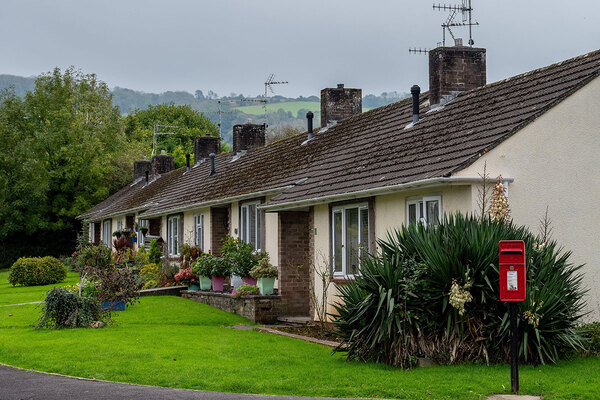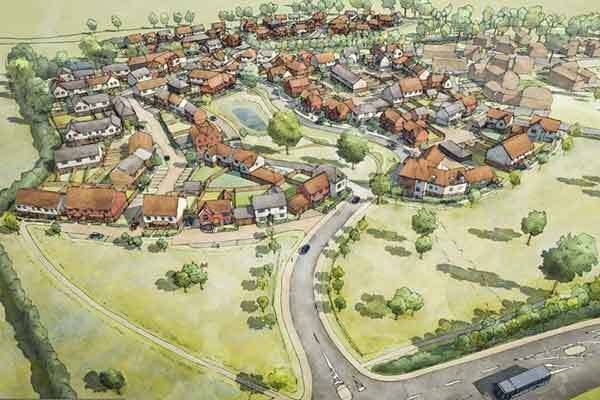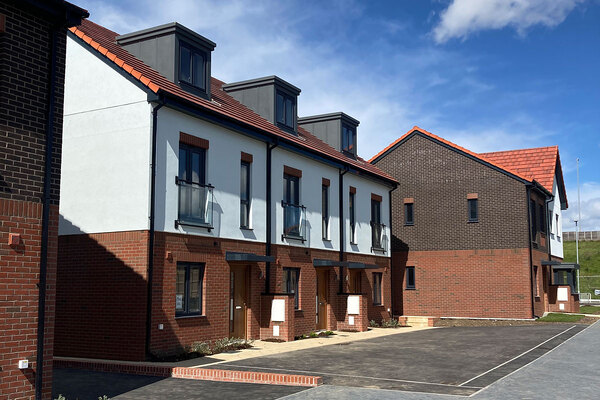You are viewing 1 of your 1 free articles
A crucial Budget at a pivotal time
Nick Atkin, chief executive of Yorkshire Housing, shares his initial thoughts – positive and negative – on the Autumn Budget
The Autumn Budget couldn’t have come at a more critical moment. The economy’s still shaky, with interest rates much higher than they should be due to the idleness of the Bank of England to reduce rates, which in turn is continuing to fuel sluggish growth.
Add to this the government having to deal with an eye-watering “£22bn black hole” in the public finances due to “unfunded pressures inherited from their predecessors” leaves chancellor Rachel Reeves with very little wiggle room.
It’s hard to find anyone who thinks the government’s big goal to deliver “the biggest boost to affordable housing in a generation” is achievable without more funding and policy changes. The gap between ambition and action is obvious. Just recently, the National Housing Federation warned that, without additional funds, the government will miss their new homes target by nearly a third.
Among this backdrop, it was a relief to see the chancellor announce a raft of measures to get the country building and support people on the lowest incomes. It’s a clear signal the government is paying attention to what we’ve been asking for and that they share our ambition to tackle the housing crisis.
Houses don’t grow on trees, and they’re not exactly cheap or quick to build. The hard truth is, we’ll only tackle the housing crisis with a significant increase in long-term funding. This is the key to unlocking some of those larger strategic sites that have become stuck in the boom-bust cycle of the Affordable Homes Programme.
The current three-year funding cycle doesn’t make sense when many projects take longer than that to complete. This is why we see the delivery of new homes slowing at the end of each funding period.
The £500m added to the current programme will help housing associations get back on track with delayed or paused projects. This should increase housing numbers in the short term, but only those we can deliver before the March 2026 deadline.
“The business case for housing being an integral part of the government’s growth agenda is clear. Every £1 in grant helps housing associations unlock £4 of private investment”
Analysis over the summer showed how housing associations are still cutting back on development and spending less on Section 106 acquisitions. That’s why the government needs to go further, extending the current Affordable Homes Programme beyond 2026 and increasing flexibility on grant rates.
What we really need is long-term, guaranteed funding. I was hoping the chancellor would announce a new Affordable Homes Programme for the next five to 10 years. While more details are promised at the Spending Review in spring 2025, it would’ve been great to see a commitment to sustainable funding for new homes on a larger scale.
One option would have been to reclassify housing investment as infrastructure spending, as I outlined in this piece for Inside Housing earlier this year.
The business case for housing being an integral part of the government’s growth agenda is clear. Every £1 in grant helps housing associations unlock £4 of private investment. Plus, social housing saves tenants £9bn a year compared to private rentals and saves the government £6bn in welfare costs.
The five-year rent settlement is a positive move, as it signals a shift towards longer-term funding stability. However, a 10-year settlement would have provided the confidence to housing associations to bring forward and deliver larger schemes. It would also allow them to adapt to increasing build costs, new energy efficiency standards, and evolving customer needs.
Changes to the Right to Buy scheme are a welcome addition to this Budget; however, a more radical overhaul is needed. Reducing the discounts will undoubtedly slow down the loss of social housing stock – a problem councils and housing associations have struggled with for decades. Councils will now also get to keep 100% of the proceeds from Right to Buy sales, allowing them to reinvest in housing.
The chancellor also announced a £233m fund to tackle homelessness and rough sleeping – at the last count, a record 324,990 people were classed as homeless in England and an eye-watering 151,630 children are living in temporary accommodation. This extra funding is welcome news, although the package announced will just scratch the surface.
“The changes announced to employers’ National Insurance will have an adverse effect on the sector”
There was good news for people living in the least energy-efficient homes, with the government announcing it would kick-start the Warm Homes Plan with an initial £3.4bn in funding over the next three years. This aims to “transform 350,000 homes, including a quarter of a million low-income and social homes”. However, with the average cost of retrofitting an existing home to Energy Performance Certificate Band C or above totalling £35,000, more funding is needed.
What was missing was a focus on skills. With one in five workers in the construction industry over the age of 50, the government needs a clear plan to tackle the skills shortage. I would’ve liked to have seen some measures to increase the number of apprentices, such as changes to the Apprenticeship Levy, alongside a review of current entry requirements, promoting existing programmes and working with education providers to improve training provision across the country.
Finally, the changes announced to employers’ National Insurance will have an adverse effect on the sector. Although the 1% increase was trailed, the reduction in the threshold leaves a sour taste. For Yorkshire Housing, these two changes will cost an extra £1m – multiply that across the whole sector and our overall capacity will be reduced.
In the end, every government decision trickles down to our customers, and we all know that rising living costs have hit hard in recent years.
The chancellor has approved an above-inflation hike to the minimum wage, giving over a million workers a 6% increase. Younger workers, aged 18-20, will get an even bigger boost to bring them closer to other adult rates.
There was also welcome news for people on the lowest incomes. The Household Support Fund and Discretionary Housing Payments will be extended, with an extra £1bn set aside from next year. Also welcome was the limit on debt repayments taken from Universal Credit being lowered, helping around 1.2 million of the poorest households who will be able to keep more of their reward each month.
These measures will provide some relief, but there’s still more that needs to be done to support low-income families. To make a real difference, we need more government support, both in grants and an improved welfare system.
Housing benefit should be adjusted to match real rent levels, and there should be more targeted help for tenants struggling with rising energy bills. Otherwise, many people will continue to face impossible choices between heating their homes, putting food on the table and paying their rent. Unfortunately, we know this is still happening, with more people reaching out to us for help with rent and dealing with mental health challenges.
Overall, this was a solid first Budget for the government and the housing sector. While it provides some short-term additional funding, we know that solving the housing crisis requires more than just one-off actions. That’s why we need to keep pushing for long-term investment in social housing. The National Housing Federation has called this a once-in-a-generation opportunity to tackle the housing crisis and ensure that everyone has a safe, secure and affordable place to live. That’s why we need bold action – not just from the housing sector, but from policymakers, too.
Nick Atkin, chief executive, Yorkshire Housing
Sign up for our daily newsletter
Already have an account? Click here to manage your newsletters












